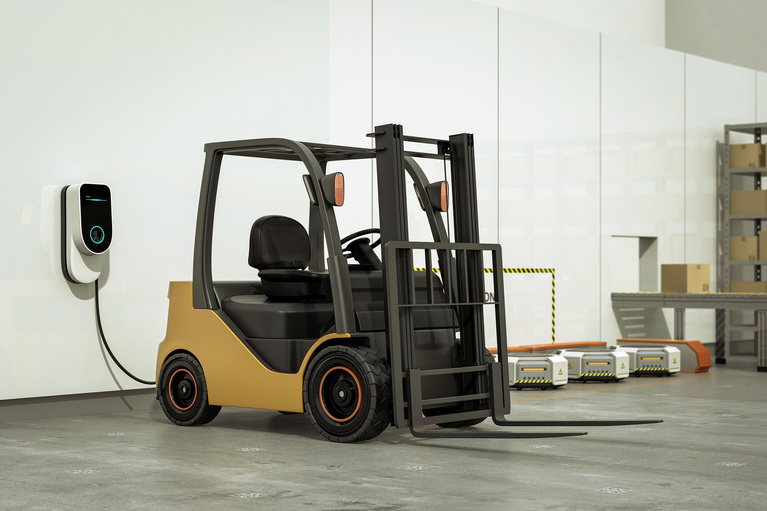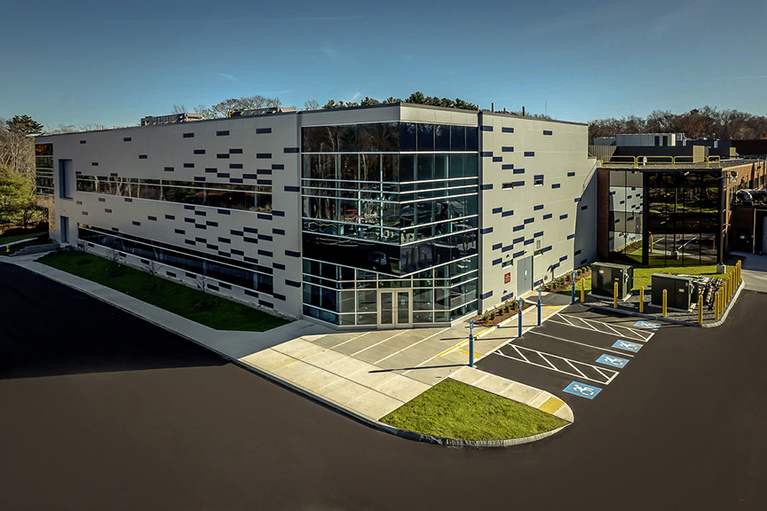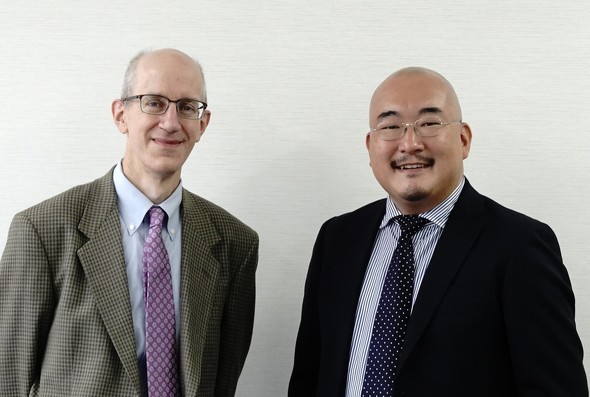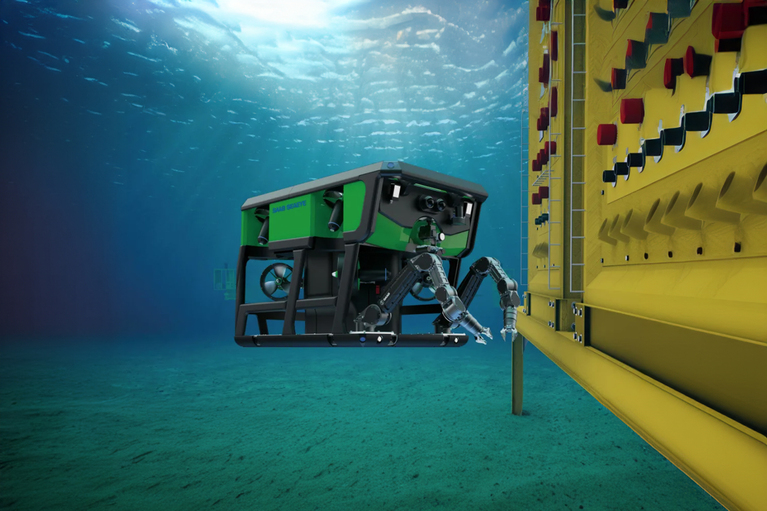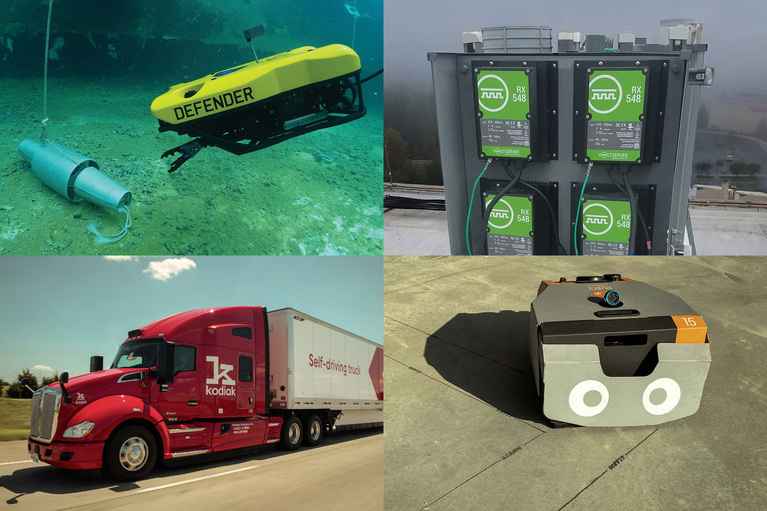
Microgate and Vicor partner to unlock deep space secrets
Learn how high density power modules help colossal Earth-based telescopes enhance deep space images
In recent years, new technology trends such as electrification and battery drive have accelerated in the industrial equipment market, and it is possible to make great use of HPC and in-vehicle technologies that Vicor has been particularly focused on developing over the last four to five years.
By David Krakauer and Yuba Dozono
Specializing in power solutions, Vicor is eyeing new business opportunities in the industrial equipment market. In recent years, new technology trends such as electrification and battery drive have accelerated in the industrial equipment market, and it is possible to make great use of HPC and in-vehicle technologies that Vicor has been particularly focused on developing over the last four to five years. In early August, Mr. David Krakauer, Vice President of Vicor's Industrial Division and Corporate Marketing Department, visited Japan. We asked Mr. Krakauer and Mr. Yuu Dozono, President and Vice President of Vicor's Japanese subsidiary, about Vicor's strategy in the industrial equipment market.
Krakauer: We are paying attention to the fact that electrification has started and is progressing in all areas. It should be noted that the need for battery drive is increasing, not just electrification. Not only automobiles, but also heavy machinery, construction machinery, agricultural machinery, light electric vehicles, electric motorcycles, motorboats and other recreational equipment are shifting from ICE (engine-powered gasoline or light oil) to battery-powered. It's starting.
Dozono: For these applications, miniaturization of the control side is required along with the increase in size of the battery pack in order to extend the operating time as much as possible. Vicor's power modules, which are space-saving and offer high power density and efficiency, are areas where performance can be demonstrated.
Dozono: The electrification of industrial equipment, which will accelerate in the future, has already become a trend in the automotive market.
For example, in an electric vehicle (EV), a high voltage battery of 400V/800V is stepped down to the voltage required to operate the system, such as 48V or 12V. In this way, the trend of introducing compact and highly efficient power systems while supporting high-voltage power supply is starting to appear in the industrial equipment market.
Since Vicor started its automotive business in 2018, it has developed automotive products in line with trends such as high-voltage batteries, miniaturization, and high efficiency. In other words, we can deploy the latest technologies and products that we have invested in as a company-wide strategy and developed for automobiles for the industrial field. We believe that this will help solve the problems that many customers face in developing next-generation power supply systems.
Krakauer: The development of these products for the industrial market, where electrification is progressing, will also lead to market development in new fields. In fact, talks are already underway with major heavy machinery manufacturers around the world.
For applications that require large currents and power, we will develop new products with optimized designs. It is also possible to develop new products for specific markets with the latest technology that catches the leading edge of trends.
Figure 1: BCM6135 is an isolated DC-DC converter with a maximum conversion efficiency of 97.9% and a fixed voltage conversion ratio. Chassis Mount type is 61.3×35.4×7.4mm, 68g CM-CHiP package.
Krakauer: When designing a power system, the first method is to obtain a general existing power supply. However, they are often large in size. Even if it is configured using discrete components, the burden of design increases, and the development period also increases. Vicor's power supply module is a product in which the components necessary for power supply are mounted in a small package. In addition, the proprietary Factorized Power Architecture, which divides voltage regulation, voltage conversion and isolation into separate converters, optimizes the power system and improves performance.
One example of such products is the "BCM series" of bus converter modules. It is an insulated DC-DC converter with a fixed voltage conversion ratio that can be used bi-directionally. It has a lineup that supports input voltages ranging from 48V to 800V, and has an extremely high efficiency of 97 to 99%. high. Since the K factor, which is the voltage conversion ratio, also has various values, it can be used in a wide range of applications.
Isolated DC-DC converter module "DCM series" is also one of our main products. For example, one of our customers in Japan, Fukaden, has adopted the DCM series for the power supply unit installed in its wired drone. In this power supply unit, the voltage was boosted from the conventional 24V to 370V in order to reduce the weight of the transmission cable, and a DC-DC converter was required to step down from 370V to drive the system. A typical step-down DC-DC converter module is large in size and heavy in weight. By adopting Vicor's DCM series, the volume was reduced to about one-fourth and the weight was reduced to less than one-half.
Dozono: Because of the wide variety of industrial applications, we have further subdivided them into sub-segments so that we can respond more flexibly. Among them, the markets in Japan that we are focusing on are test equipment/semiconductor manufacturing equipment, robotics, and factory automation. In addition, we will also focus on applications other than automobiles, such as electric bicycles and forklifts, where electrification is progressing.
One of our strengths is that we have a lineup of suitable products for both boosting and bucking. In particular, Japanese customers appreciate the fact that we are developing a product group that fits into parts that could only be configured with discrete components.
Also, when design changes occur due to changes in market trends or customer situations, the development period is generally longer. However, since our power supply solutions are designed to consist of modules, even if they were to be redesigned, only a small amount of change would be required, and in many cases the development period was only slightly extended. Customers are required to respond quickly to market demands. I feel that the needs for our modules are increasing in proportion to the increase in speed. Vicor's strength lies in its ability to consistently provide power system optimization and support, including such design changes.
Krakauer: It's still a mainstream method in many fields. When configuring a power supply with discrete components, there is an advantage that the time to market is short while the same thing can be diverted. On the other hand, there is a drawback that it is difficult to change the design. It can be said that the fact that "the design cannot be changed easily" imposes restrictions on engineers. Therefore, it seems that the current situation is that methods other than discrete devices are also being explored.
The power supply modules provided by Vicor are not only compact and easy to use, but they can also be connected in parallel to support various power levels, making it easy to change the design.
Vicor is in a unique position as there is no other manufacturer in the world that offers power supply modules like ours. Therefore, depending on the field, the existence of the power supply module is not well known, and it cannot be denied that the mainstream of design is discrete. In other words, there is room for new innovation. Currently, we are collaborating and developing with various companies, focusing on targeted sub-segments.
Dozono: In order to keep up with market needs, power systems also need innovation. Repeated discussions with customers often lead to system development that maximizes the benefits of Vicor's power supply modules. We draw out latent customer needs and connect them to innovation in power supply architecture.
Krakauer: Vicor has expanded its market in the HPC (High Performance Computing) and automotive fields over the past few years, but since its founding, it has built a history in the aerospace/defense and industrial equipment fields. To facilitate a greater focus on these areas, the company has made a major reorganization by creating four business units dedicated to the Industrial Equipment, Aerospace/Defense, Computing and Automotive sectors. Each division understands the needs of each market and optimizes technology by communicating closely with Vicor's local subsidiaries (sales and technical support centers) around the world.
Dozono: This is a situation that all suppliers around the world are facing, but it is precisely because of this situation that it is important to work closely with customers and strengthen the system to ensure a stable supply of products. I reaffirmed. In addition, the supply system will be further strengthened as the new factory will be in full operation by the end of this year.
Figure 2: The new Vicor plant for “ChiP” packaged power supplies.
Krakauer: At the factory that manufactures ChiP (Converter housed in Package), Vicor's unique power supply module package, we will realize scalable power supply ChiP manufacturing in the United States.
The new factory will be able to handle some of the manufacturing processes that were previously outsourced, making it possible to vertically integrate all manufacturing processes, from receiving orders to manufacturing and shipping. This will make it easier to control production capacity and costs, and build a robust supply system.
Another advantage is that communication between the manufacturing and design teams is easier. With the manufacturing and design teams in the same area, design or manufacturing issues can be addressed quickly. The mass production system at the new factory is currently in the process of being launched, and is scheduled to begin full operation within the next few months.
Mr. Krakauer: During this visit to Japan, I was able to meet directly with Japanese customers and have many fruitful conversations. In cooperation with Dozono and other Japanese members, we will provide support from the head office so that customers can solve their difficult power supply problems.
Mr. Dozono: In the industrial equipment market, where demand for high-performance power supplies is expected to increase, all of us at Vicor will strive to contribute to the innovation and development of power supplies for Japanese customers.
This article was originally published by EETImes Japan.
David Krakauer is the Vice President,
Corporate Marketing
Yuba Dozono is the President Vicor K.K. and
VP Japan Sales & Marketing
David Krakauer and Yuba Dozono
Microgate and Vicor partner to unlock deep space secrets
Learn how high density power modules help colossal Earth-based telescopes enhance deep space images
Vicor 的电源模块赋能全球最先进的全电动工作级水下机器人(eWROV)
Saab UK 推出多功能且环保的 eWROV,使用紧凑、高热效能的电源模块实现世界级的性能
电源驱动创新电子书:第 1 卷 —— 拯救生态环境
保护和维护环境的技术突破
电源驱动创新电子书:第 3 卷 — 改变一切可能
挑战设计和性能界限的技术进步
